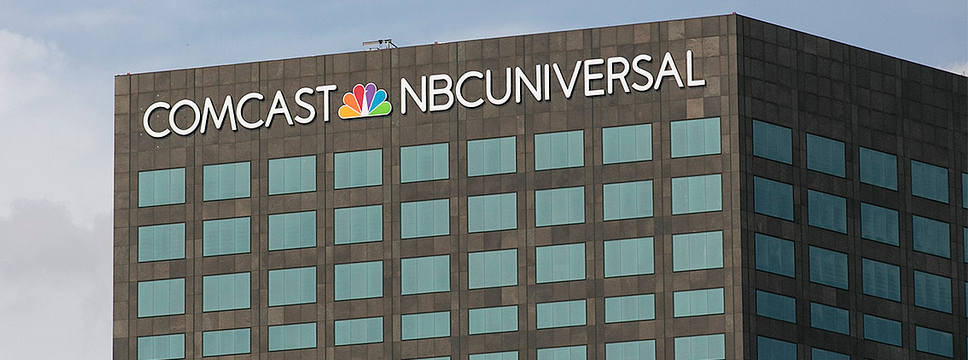In Atlanta? You Can Soon Sign Up For Internet Twice As Fast As Google Fiber. The Downside: It’s From Comcast
Atlanta residents are now well-poised to join inhabitants of metro Raleigh and Kansas City as citizens of one of the nation’s few crucibles of fiber competition. Comcast is setting its sights squarely on Google Fiber today with the announcement of a new fiber to the home offering at twice Google’s speed, and Atlanta is the lucky city getting first dibs.
The service is not called “True Gig,” as earlier trademarks indicated it might be; it’s simply Gigabit Pro. Despite the “Pro” in the name, however, the announcement clearly specifies residential multi-gigabit broadband service, so it’s not just for businesses.
Comcast also specifies that the service will be available to “any home within close proximity of Comcast’s fiber network and will require an installation of professional-grade equipment.”
An exec for the company, VP of internet services Jason Livingood, also confirmed on Twitter that the Gigabit Pro service will not be subject to data caps.
The announcement really is good news for customers who happen to live in the right place and who can afford the service. Who wouldn’t want a 2 Gbps symmetrical home fiber connection? Despite an editorial penned two years ago by Comcast mouthpiece David L. Cohen saying that nobody really needs gigabit connections, everybody seems to be clamoring for them anyway.
However, as we’ve seen in the past just because the cable giant will offer the service “to more than 1.5 million customers” is no guarantee that those customers will actually be able to enroll. Even if Comcast swears up and down that they can.
Comcast also seems to be making some awfully large promises, on first blush. In a blog post about the rollout, Comcast executive Marcien Jenckes adds, “We’ll first offer this service in Atlanta and roll it out in additional cities soon with the goal to have it available across the country and available to about 18 million homes by the end of the year.”
The trick is, “available to about 18 million homes this year” doesn’t actually mean, “we can upgrade 18 million existing Comcast subscribers this year.”
Comcast has approximately 22 million total subscribers, as of the end of 2014. (If they are permitted to merge with Time Warner Cable, the combined company will have upwards of 30 million customers.)
Although there are indeed also plans in the works — as Comcast describes — to upgrade the cable connection speeds for most of those existing 22 million customers this year through other means, the pool of “22m existing subscribers” and “18m homes that can get Gigabit Pro fiber this year” are not exactly the same pool.
The 18m homes, instead, seems to refer to the number of residents within a certain distance of Comcast’s fiber lines in the cities — like the Atlanta metro area’s 5.5 million — where the company has plans to offer the service. That number may also include cites currently in TWC’s service area.
The other major caveat? There’s no word on pricing. Google Fiber pretty famously offers their gigabit service for $70 per month, which has caused competitors in those limited markets to match the price. But although Google does have plans to bring Fiber to Atlanta, those plans are in the early design stage and it will be months, if not years, before anyone in the area is brought online. The same goes for AT&T, which has vowed to bring its GigaPower service to Atlanta, but is likewise still only in the planning phase.
That means Comcast gets first dibs on those would-be fiber customers, and that they get to launch without low-priced competition (or any fiber competition) in the neighborhood. A timed exclusive, as it were. By the time anyone else can get to market, Comcast will (they hope) have an entrenched subscriber base. But without competition on the block, they don’t have to keep their prices as low.
We’ll find out what they plan to charge when the company unveils its pricing and plan options next month.
Want more consumer news? Visit our parent organization, Consumer Reports, for the latest on scams, recalls, and other consumer issues.


